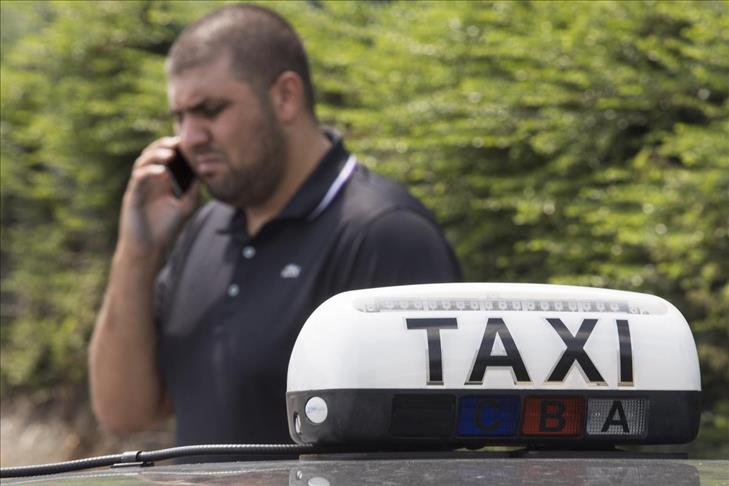Uber comes to Kenya, but not without controversy
American taxi service receives mixed welcome in East African country, with local taxi drivers complaining of competition

By Andrew Ross
NAIROBI, Kenya
The American online taxi service Uber has put down roots in Kenya, redefining the taxi industry in the capital Nairobi.
“Oh it’s brilliant,” college student Jane Memusi, 24, told the Anadolu Agency. “It has to be the safest mode of transport in Nairobi.”
“Many college students fall prey to thieves, so they prefer to use Uber to reach home safely,” Memusi said.
The American taxi firm told Anadolu Agency that after their launch in Johannesburg nearly two years ago, they decided to open more outlets in Africa.
“After we recruited a full team for Lagos, Nigeria, we came down to Kenya and we launched here,” Alastair Curtis, Uber general manager in Nairobi, told Anadolu Agency. “Kenyans have wanted this product for a long time.”
“We are finally here and we are happy to be contributing to local society,” he said. “Safety is the main value that we offer on the market here.”
“We go beyond what is traditionally done in terms of background checks on drivers,” he continued. “Every single driver we bring onto our platform has to have what we call a PSV (Passenger Service Vehicle) driver’s license, which means that they have a certificate of good conduct.”
Curtis added that the Uber app offers a variety of features that many users become attached to.
“You see your driver, you see the number plate of his car, you can see him on the map coming towards you, so you know exactly what you are getting and you know that the trip is being tracked by Uber as well, so we are with you during every step of the way,” he said.
However, Benard Irungu, who owns a boutique in the Kenyan capital, was not satisfied with his Uber experience.
“I saw Uber in the movies and was very excited when I heard that it was coming to Nairobi,” Irungu said. “But, I am quite disappointed.”
“One day I was leaving work late and my friend offered to call an Uber taxi. We looked at the app and waited for the cab to show up,” he said.
“Minutes later we saw the car on the app parking besides where we were but on the actual road there was not a single vehicle that was moving,” he said.
Irungu added that some internet service providers are not well suited to work with the app and that Uber should check to see that the app uses as little data as possible so as to suit all customers.
Taxi War
Uber’s transparent pricing is another feature that is popular with the local population.
“We charge a set rate per kilometer and per minute,” Curtis said. “ No matter what the situation, you are going to be charged fairly.”
Local taxi drivers in the Kenyan capital told Anadolu Agency that they cruise around hotspots hunting for work all day and charge as per “the weather.”
“They [Uber] should not have come to the capital,” Francis Ndegwa, a taxi driver, told the Anadolu Agency. “Business for us was booming, but now some of our clients are going to Uber [and] this is spoiling business for us.”
“Kenyans are used to being charged by ‘the weather,’ there is no way I will sit in traffic for two hours with my engine running and you expect me to charge you normally,” Ndegwa argued. “Many Kenyans understand this.”
“I wanted to join their [Uber’s] program, but then I was so sure that they would not accept me,” said Njoroge Mwangi, another taxi driver. “They expect us to be angels, with cars that are in not good but great condition, with all the necessary papers.”
“If something is not done, then this may lead to a taxi war with everyone wanting to protect his turf,” Mwangi added.
Anadolu Agency website contains only a portion of the news stories offered to subscribers in the AA News Broadcasting System (HAS), and in summarized form. Please contact us for subscription options.

